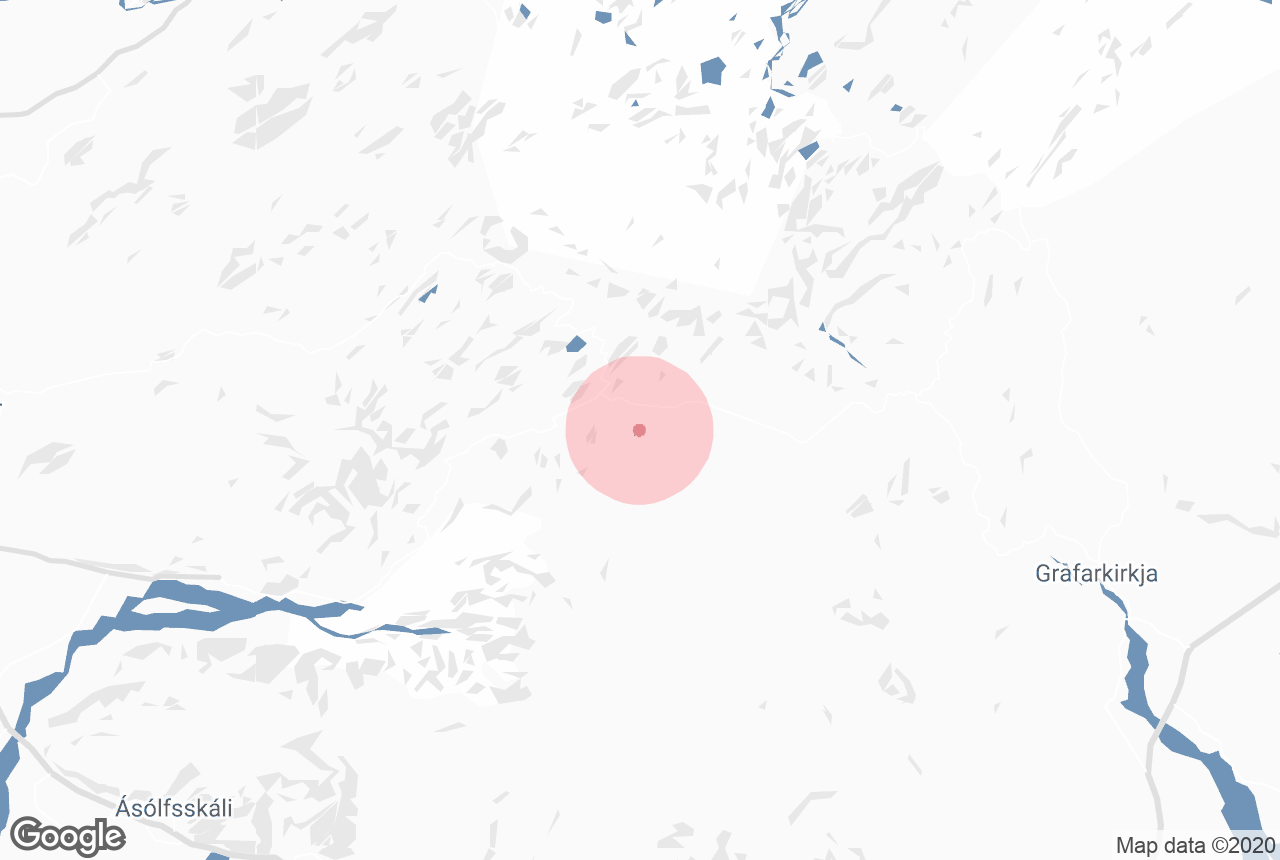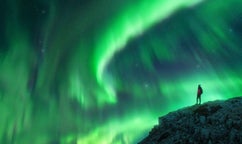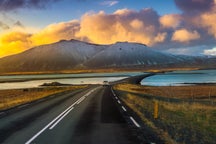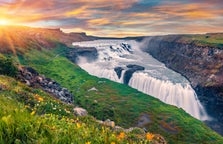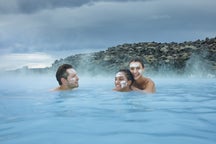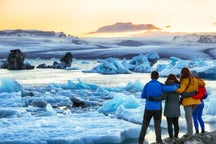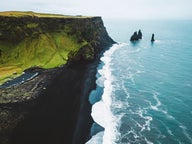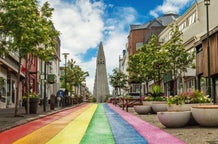Bláfjöll Travel Guide
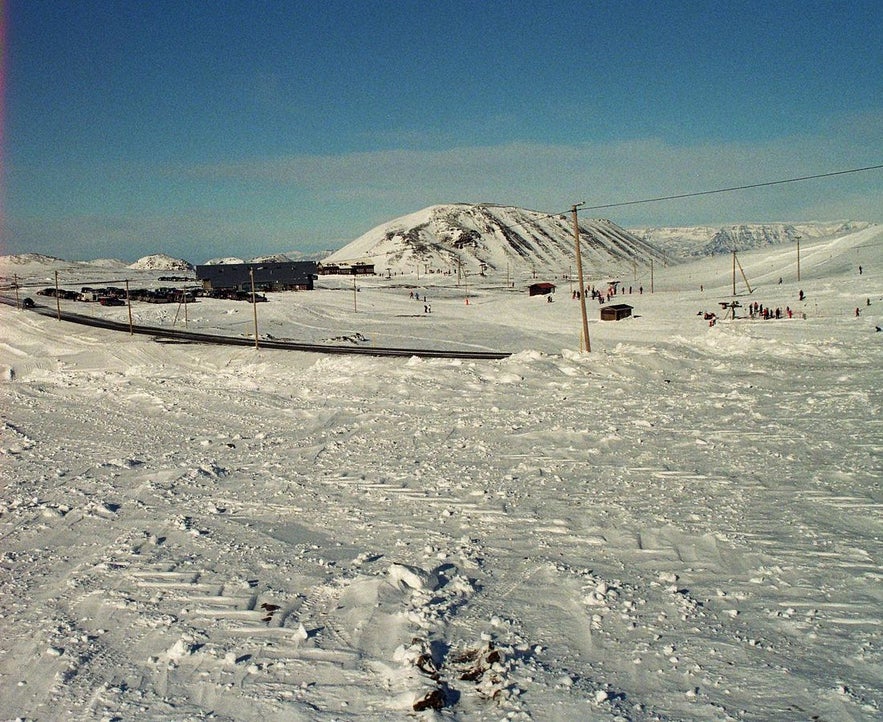
The Blue Mountains, otherwise known as Bláfjöll, are a beautiful mountain range in the south-west of Iceland. They hold some of the most popular skiing slopes in Iceland, and well as the potential for other activities such as caving and hiking.
Take a self drive tour in Iceland to explore this region.
Photo above from Wikimedia, Creative Commons, photo by Reykholt. No edits made.
The Blue Mountains are located around 20 kilometres (12 miles) from Reykjavík, by the lava plateau of Hellisheiði.
Geology of the Blue Mountains
The Blue Mountains partially cover the Mid Atlantic Rift, which runs through Iceland. The very regular earthquakes and sporadic eruptions, therefore, are explained the high level of geological and geothermal activity that this rift creates.
Most of the mountains are now dormant, not having erupted since the last Ice Age, but not all.
Due to their formation, the Blue Mountains are composed of tuff rock.
Activities in the Blue Mountains
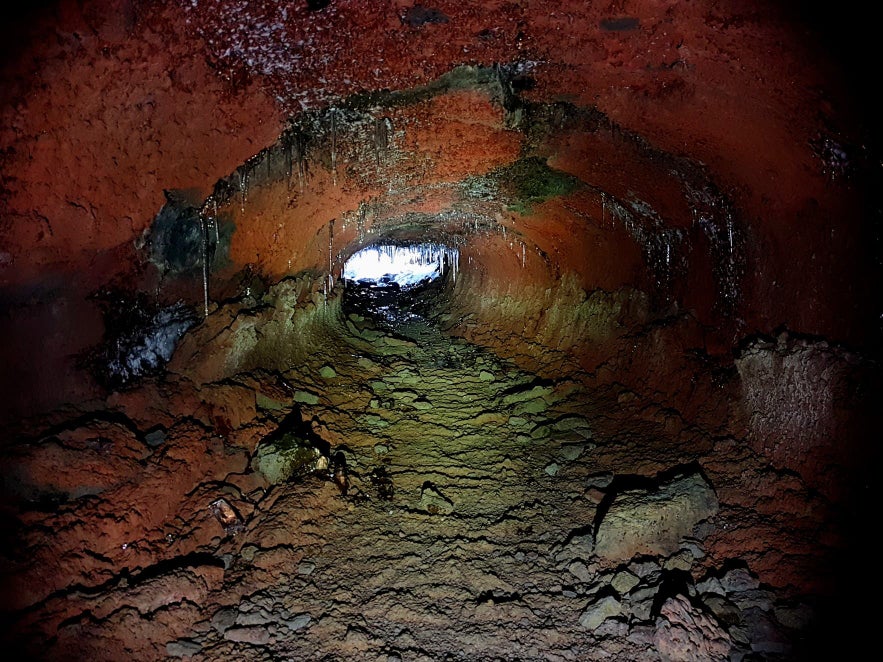 Photo from Leidarendi Cave on the Reykjanes Peninsula | Half-Day Tour from Reykjavik
Photo from Leidarendi Cave on the Reykjanes Peninsula | Half-Day Tour from Reykjavik
As mentioned, the Blue Mountains has some of the most popular slopes in Iceland. Being so accessible from Reykjavík, just a twenty five minute drive away, the region draws those who love to ski and snowboard from the beginning of February to the end of April.
Due to these opening dates, winter sports have become somewhat of an Easter tradition for many of those living in the capital.
The resort here is the largest in Iceland, and boasts 16 ski lifts, and 15 kilometres (nine miles) of slopes. Equipment can be rented on site, and there are regular lessons taught for newcomers. Regardless of if you are a novice or expert, there are slopes for all abilities.
Cross country skiing is also very popular in the area, but should only be done by those experienced, or with a trained guide. Some snowmobilers also make the most of the opportunities the mountain provides.
Other areas for skiing in Iceland include Akureyri and Skaftafell Nature Reserve.
A popular activity that can be enjoyed in the Blue Mountains throughout the year, however, is lava caving. Due to the the volcanism of the area, the plateaus around the mountains are composed of many layers of lava rock.
When this lava first cooled, it did so from the outside in, leaving running magma beneath it. If this magma had a place to flow out to, it would form a lava cave.
Leiðarendi is a beautiful tunnel, formed in a kind of ring that allows visitors to fully explore it. Trips to Iceland’s lava caves provide wonderful opportunities to learn about the nation’s geology, history of bandits, and folklore, particularly the tolls.
This lava tube also demonstrates the volcanism of the Blue Mountains. It was, in fact, created by two seperate eruptions, one two thousand years ago and one a thousand years ago. The lava tunnels formed in each collapsed together at what is now the entrance of the cave.
Much of the area around this cave and much of the Blue Mountains is covered in a delicate moss, that creeps over the lava. When visiting any area with this unique flora, such as hiking trails through the mountains, be careful not to step on it as it is remarkably delicate
Attractions Nearby
Popular categories

Download Iceland’s biggest travel marketplace to your phone to manage your entire trip in one place
Scan this QR code with your phone camera and press the link that appears to add Iceland’s biggest travel marketplace into your pocket. Enter your phone number or email address to receive an SMS or email with the download link.
